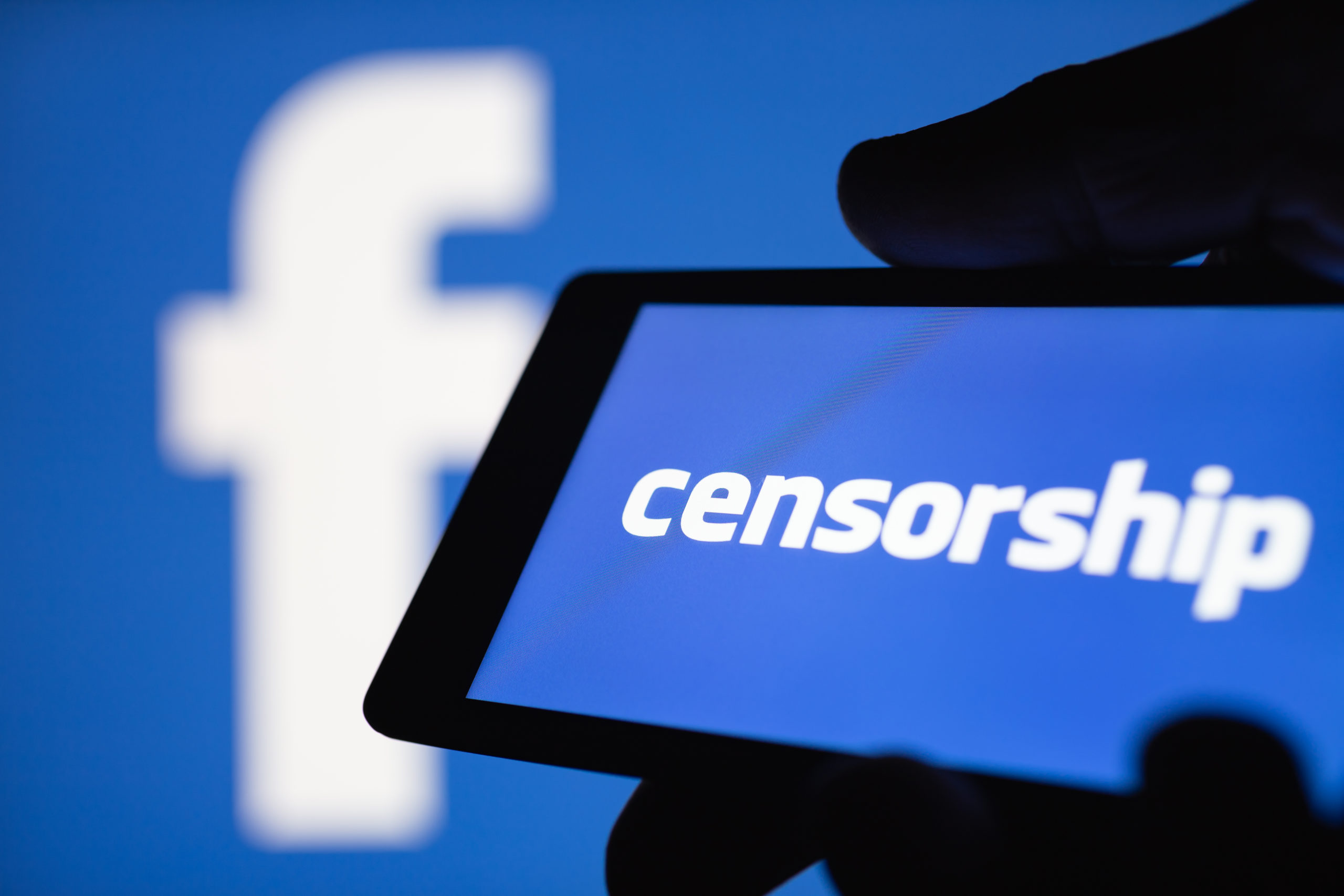Free Speech vs. Government Censorship
Free Speech vs. Government Censorship

When government officials block or remove comments from social media, is it considered a First Amendment rights violation? This topic has been debated for years, but, as the Internet continues to evolve, this issue’s popularity only continues to grow.
Free Speech and Social Media
In 2018, the Knight First Amendment Institute filed a lawsuit against former President Donald Trump for this very issue. After seven people were blocked from the former President’s Twitter account, @realDonaldTrump, The Knight First Amendment Institute took legal action against Trump, and his communications team. In Columbia University v. Trump, they challenged the President’s decision to block his critics on Twitter (now X) by arguing that the President’s Twitter account is considered a “public forum.”
Note: the legal definition of public forum is “a place that has a long-standing tradition of being used for, is historically associated with, or has been dedicated by government act to the free exercise of the right to speech and public debate and assembly.”
When considering this definition ask yourself: “Does Twitter/X meet the criteria to be considered a public forum?” Would X be considered “a place with a long-standing tradition of being used for or history associated with” the right to free speech? It’s been around for 18 years, and almost every government official uses the platform to tweet updates, political messages and connect with the community. However, X is a privately owned company, so it has not “been dedicated by government act” for free speech. Furthermore, as a private company, X gets to say what can and cannot be done on its platform.
Potential First Amendment Limitations and Free Speech Limitations
Surprisingly, in May 2018, Judge Naomi Reice Buchwald ruled that former President Trump violated the blocked users’ First Amendment rights. According to the ABA Journal, Buchwald found Trump to be engaging in “impermissible viewpoint discrimination”. However, the ruling appears to be limited to situations where government actors use their accounts in the course of their official positions — for example: the highest office in the United States.
However, the government appealed Buchwald’s decision, arguing that it was “fundamentally misconceived”. Their reasoning being that the President’s Twitter/X account belongs to him, and is therefore subject to his personal control — not the government’s. As such, Trump did not violating any First Amendment right to free speech by blocking others from his account.
In other words, just like you can block someone from your social media accounts, Trump has the right to block as well.
The Knight Institute disagreed, though, contending that the interactive space on X is a designated public forum since the government has intentionally opened the space up for expression of its official views (which coincides with the definition of public forum mentioned before). The government, and former President Trump, have chosen to communicate to the public through Twitter/X, opening up the opportunity for free speech. It would be different if the President had his account on private and only tweeted to certain followers, but his account is indeed public for all to view and respond to.
Did Trump Violate the First Amendment?
On Tuesday, July 9th, 2019, the 2nd US Circuit Court of Appeals upheld Judge Naomi Reice Buchwald’s ruling. According to CNN, Judge Buchwald concluded that “the First Amendment does not permit a public official who utilizes a social media account for all manner of official purposes to exclude persons from an otherwise-open online dialogue because they expressed views with which the official disagrees.”
This ruling is one that may impact First Amendment cases involving social media, in which social media is treated as a public forum. However, this case is not the only one that addresses the struggle for free speech and the right to petition the government. Countless others have addressed this issue in disputes involving state and local government officials who have blocked users based on their political critiques.
Some solutions to these issues lie within the implementation of new social media policies and the creation of forums dedicated to posts of political expression, no matter the view. Unfortunately, though, these solutions still seem as if they are only masking the issue at hand.
Is The Government Censoring the Internet?
The right to criticize government officials and policies is something that is protected by the First Amendment. With the power and influence of social media, though, it’s hard to define the line that crosses into the right to block free speech. Not to mention, the government does not own platforms like X and Facebook, so they technically have no say in what type of content is removed. However, it looks like Mark Zuckerberg, founder and CEO of Facebook, is hoping to change the amount of control the government has in dealing with this issue.
In a statement released by Zuckerberg, he calls for stronger internet privacy and election laws that will “protect society from harmful content, ensure election integrity, protect people’s privacy and guarantee data portability,” as reported by CNBC. Even Zuckerberg understands that Facebook can be used to harass, defame, and violate the rights of others — and perhaps even steer an election.
Free Speech vs Defamation
Only time will tell what other cases will be impacted by Buchwald’s decision and if any changes will be implemented. For now, always be conscious of what you say on social media. You could be violating the privacy rights of others by publishing unprivileged, defamatory or otherwise, harassing speech.
Looking for a Defamation Lawyer?
If you need guidance on Internet defamation, cyberbullying, or free speech issues on social media, contact the attorneys at RM Warner Law or visit our location to learn more.
Sources:
http://www.abajournal.com/magazine/article/social-clashes-digital-free-speech
https://www.cnn.com/2019/07/09/politics/twitter-trump-appeals-court/index.html
Similar like this
You also might be interested in
Why Influencer Lawsuits Are on the Rise: And What It Means for the Industry
The influencer marketing industry has grown significantly over the past [...]
How to Remove Defamatory Content from the Internet: Legal Options Explained
In today’s digital world, defamatory content can spread quickly online, [...]
What’s the Difference Between Libel and Slander? A Legal Breakdown
A false statement can spread quickly and damage someone’s reputation, [...]
How a Cyber Harassment Lawyer Can Help You Fight Online Abuse
The internet has changed the way we communicate, but it [...]





